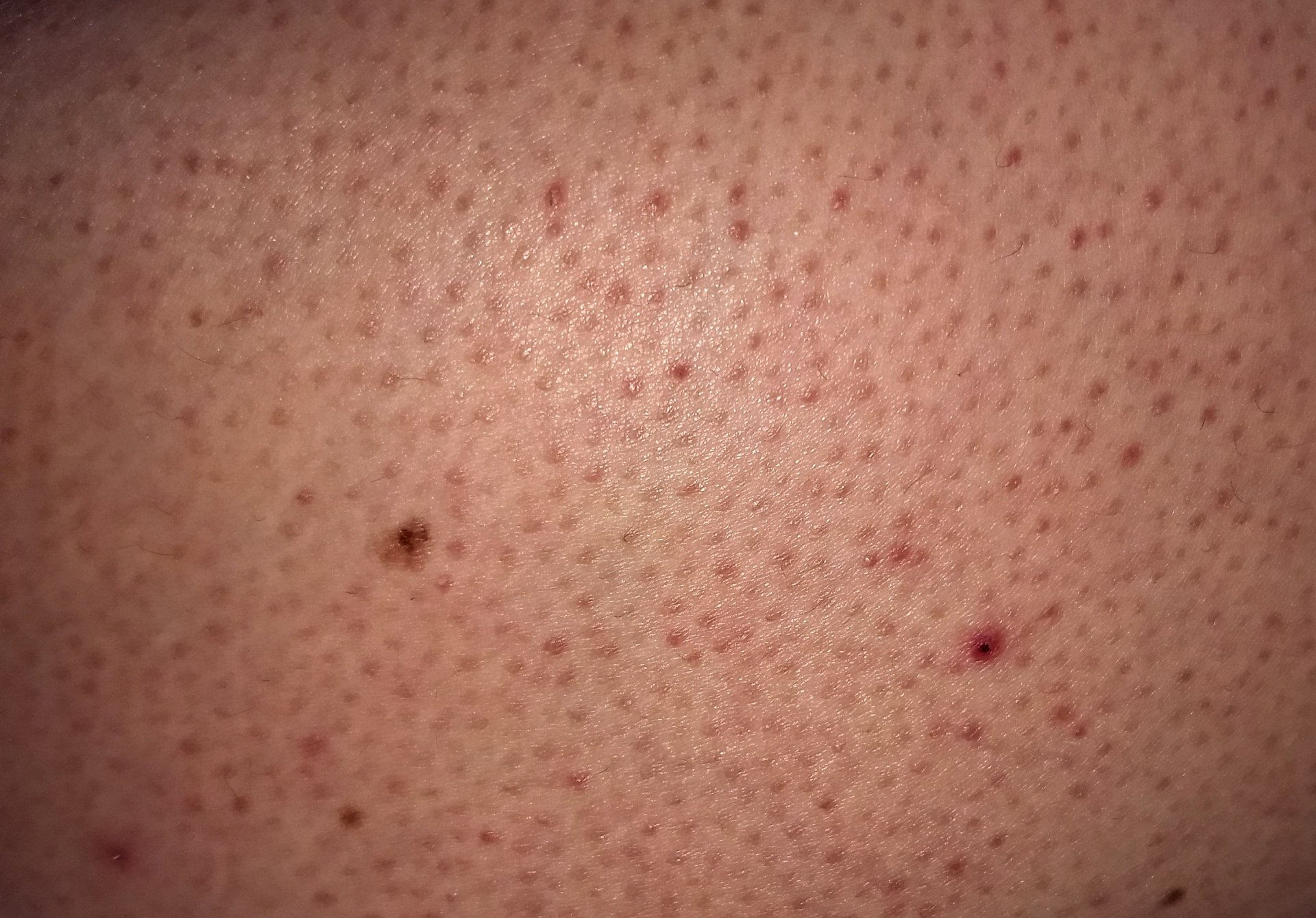Keratosis Pilaris TreatmentBeverly Hills & Los Angeles
Expert Keratosis Pilaris Treatment in Beverly Hills and Los Angeles
What is Keratosis Pilaris?
Keratosis pilaris (KP) is a chronic skin condition characterized by scaly, goosebump-like lesions that can become dry and itchy, especially in more arid climates. It is also known as “chicken skin” because the symptoms resemble a plucked chicken’s skin. KP commonly appears on the back of the arms, the thighs, and the buttocks.
KP is more common in adolescents than in adulthood. According to epidemiology studies, KP affects roughly 50 to 80 percent of the world’s adolescent population, while it affects about 30 to 50 percent of the world’s adult population. KP is more prevalent in women than in men. KP is not a dangerous skin condition; indeed, many healthy individuals experience KP symptoms.
What Causes Keratosis Pilaris?
Experts are unsure of the exact cause of keratosis pilaris (KP). Research indicates that genetic factors cause the overproduction of keratin, which leads to the development of KP. Patients with a family history of KP, eczema, and asthma are more likely to develop KP themselves. Arid climates and colder weather are common triggers of KP symptoms.
How is Keratosis Pilaris Treated?
Dr. Hazany is a keratosis pilaris (KP) specialist based in Beverly Hills. While KP symptoms can subside as individuals age, there does not yet exist a cure for KP. However, KP is a treatable condition. Dr. Hazany can help you manage KP symptoms. Common treatments to reduce KP bumps include lotions and ointments which contain lactic acid, salicylic acid, tretinoin, or urea. Since dryness is common with KP, Dr. Hazany can also help you determine the best regimen of moisturizers.


